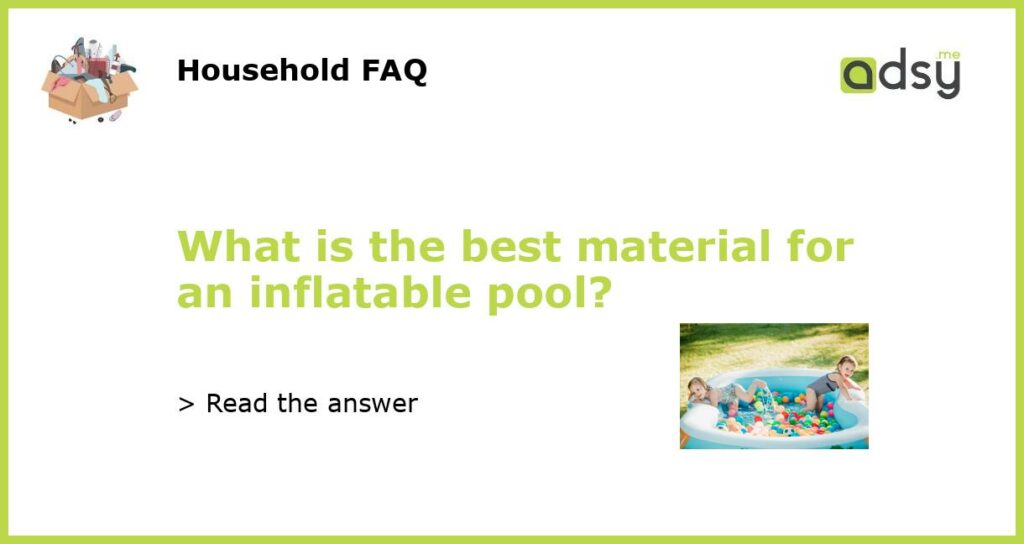Summer is here and it’s time to cool off with a splash! Inflatable pools are a convenient and affordable way to enjoy a refreshing dip in the water, especially for those who don’t have the space or budget for a full-sized in-ground pool. However, not all inflatable pools are created equal, and the material they are made of can affect their durability, safety, and comfort. In this article, we will explore the best materials for inflatable pools and what you should consider when choosing one.
PVC
Polyvinyl chloride (PVC) is the most common material used for inflatable pools. It’s lightweight, flexible, and affordable, making it a popular choice for manufacturers. PVC is also resistant to abrasion and punctures, but it can degrade over time when exposed to sunlight and chlorine. If you choose a PVC pool, make sure it has UV protection and avoid using harsh chemicals that can accelerate its deterioration.
Nylon
Nylon is a strong and durable synthetic material that can withstand high temperatures and pressure. It’s often used in inflatable boats and kayaks, but it can also be used for inflatable pools. Nylon pools are less common than PVC pools, but they offer some advantages such as better resistance to fading and mildew. Nylon is also less likely to tear or puncture, which can be a safety concern if the pool is used by children or pets.
Vinyl
Vinyl is another popular material for inflatable pools. It’s thicker and more puncture-resistant than PVC, and it has a smooth and soft texture that feels comfortable on the skin. Vinyl pools are often designed with colorful patterns and prints that add a touch of style to your backyard. However, vinyl pools can be more expensive than PVC pools, and they may require more maintenance to prevent algae growth and fading.
Rubber
Rubber is a natural material that is biodegradable and eco-friendly. Inflatable pools made of rubber are rare, but they offer some benefits such as superior elasticity and flexibility. Rubber pools are also free of PVC, phthalates, and other harmful chemicals that can pose health risks. However, rubber pools can be heavy and difficult to move, and they may not be as durable as other materials.
When choosing the best material for an inflatable pool, consider your budget, space, and usage preferences. PVC is a versatile and affordable option that can meet most needs, but it may not last as long as nylon or vinyl. Nylon is a sturdy and safe alternative that can withstand rough use, but it may not be as comfortable as vinyl. Vinyl is a stylish and smooth choice that can provide a luxurious feel, but it may require more upkeep. Rubber is an eco-friendly and elastic material that can be suitable for those who prioritize sustainability. Whatever material you choose, make sure to follow the manufacturer’s instructions and take proper care of your pool to ensure that it lasts for many summers to come!






